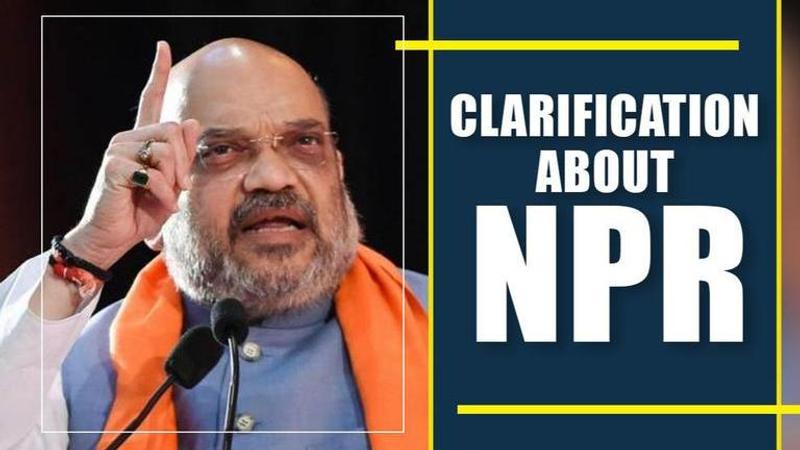Published 20:28 IST, January 1st 2020
MHA clears the air about upcoming NPR updation, asserts 'no documentation required'
On Wednesday, the Ministry of Home Affairs reiterated on Twitter that no individual would be required to furnish any document at the time of the NPR survey.

Responding to a news report about the upcoming National Population Register updation process, the Ministry of Home Affairs on Wednesday issued a clarification. It reiterated that no individual would be required to furnish any document at the time of the NPR survey. Moreover, the MHA assured the citizens that any information provided by them would be readily accepted by the authorities.
What is the NPR?
First prepared in 2010 and updated in 2015, the NPR is a register of usual residents of the country being prepared at the local (village/sub-town), sub-district, district, state and national level under provisions of the Citizenship Act 1955 and the Citizenship (Registration of Citizens and Issue of National Identity Cards) Rules, 2003. It is mandatory for every usual resident of India to register in the NPR. Under the NPR, a usual resident is defined as a person who has resided in a local area for the past six months or more or a person who intends to reside in that area for the next six months or more.
'A tax on poor people of India'
Recently, former Congress president Rahul Gandhi launched a tirade against the NPR. Gandhi dubbed it as a "tax" on the poor people of India. He alleged that both the NPR and the NRC would lead to an increase in bribery.
Rahul Gandhi said, "Whether it is NPR or NRC, it is a tax on poor people of India. Demonetization was a tax on poor people. You go to the bank, deposit money but don't withdraw it. And all the money went to those 15-20 individuals. This (NPR and NRC) is the same thing. A poor person will go to a government officer, show him their papers, bribe the officer if the name is wrong and all these crores of rupees will go into the pockets of those 15 individuals."
Updated 20:28 IST, January 1st 2020




